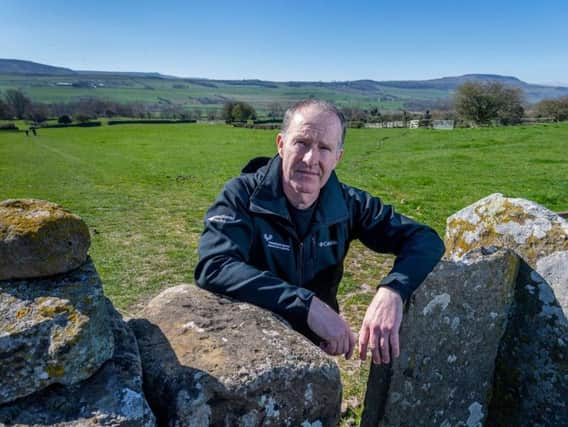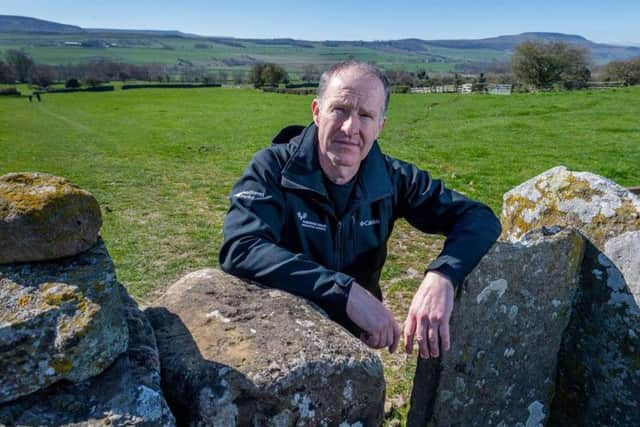'It doesn’t feel like everyone in Yorkshire Dales is trying to resolve housing shortage' - National Park boss David Butterworth
This article contains affiliate links. We may earn a small commission on items purchased through this article, but that does not affect our editorial judgement.


A potentially transformative number of sites designated for housing across the national park remain undeveloped, with some land owners believed to be holding back in order to reap maximum benefit from an inflationary effect that the allocation of their land has on its value.
Now, as the national park authority and district councils embark on its most ambitious attempts to date to retain the park’s young families and attract new ones, a tough new approach will be taken to unlock undeveloped housing sites.
Advertisement
Hide AdAdvertisement
Hide AdLand owners face seeing their land stripped of potentially lucrative housing classifications if they have no intention of bringing forward development.


Dozens such sites across the national park have been allocated for housing after being put forward for the purpose by land owners over the last decade, but new homes have been built on few of these.
Inaction on new home permissions
The situation is exacerbated by the fact that planning approvals for 424 new homes to be built across the Dales have not been acted on, despite the park authority passing more applications for homes over the last ten years than over any other period in its 65-year history.
David Butterworth, chief executive of the Yorkshire Dales National Park Authority, said the urgency of resolving the housing crisis means the authority simply has to take a stricter approach.
Advertisement
Hide AdAdvertisement
Hide Ad“A few years ago we went out with a call for housing sites and we had a good response to that, we had 28 or 30, and there are a lot of those that still exist in the park, but the people who own them won’t develop them,” he said.
“They don’t want to see development on those sites but the value of the land, because it’s, in effect, got permission on for housing is huge.
“It’s become a pension pot in itself which is fine for the individual but it’s not great for the community and to be frank, we are going back to those people and saying if you don’t develop on here we are going to take that away because this is ridiculous.
“The whole purpose behind giving the approval for sites for developing housing is to get more housing there.”
New action plan
Advertisement
Hide AdAdvertisement
Hide AdIn a new action plan, authorities set out plans to unlock development on allocated housing sites and say they will explore compulsory purchase of undeveloped sites, while increasing support available to small local building companies.
Without action, young families will continue to be priced out of village communities, putting more schools and other services at risk of closure.
Latest National Housing Federation figures show that the average cost of a house in Craven is £234,225, nearly ten times average earnings, while the average price of a house in Richmondshire is £225,818, nearly nine times average incomes.
Another factor that is stymying the delivery of much-needed new homes in the park is inaction after planning permission has been granted for roadside barn conversions.
Barns policy flawed
Advertisement
Hide AdAdvertisement
Hide AdRelaxed rules allowing roadside barns to be converted for holiday lets and local occupancy housing came into effect in October 2015.
Mr Butterworth said: “We have approved about 110 barn conversions, have refused 10 of those and only a few have been converted. A significant number of those that are given planning permission, even though they have got local occupancy conditions on, are going straight to the market for sale. People are cashing in on them, so a barn that’s worth £10,000 one day is now worth £180,000.
“The contribution of barn conversions to the wider housing issues the national park is facing is going to be very minor. It certainly won’t be a panacea for the area.”
Mr Butterworth told The Yorkshire Post he did not want his generation to fail the next by allowing the stalemate to continue.
Advertisement
Hide AdAdvertisement
Hide AdHe said: “It does feel a little frustrating that in policy terms we have put things in place but it doesn’t feel that we all recognise the problems and that we are all trying to resolve them.
“People are doing very well out of it and at the same time the demographic gets worse, services continue to disappear, schools close.”